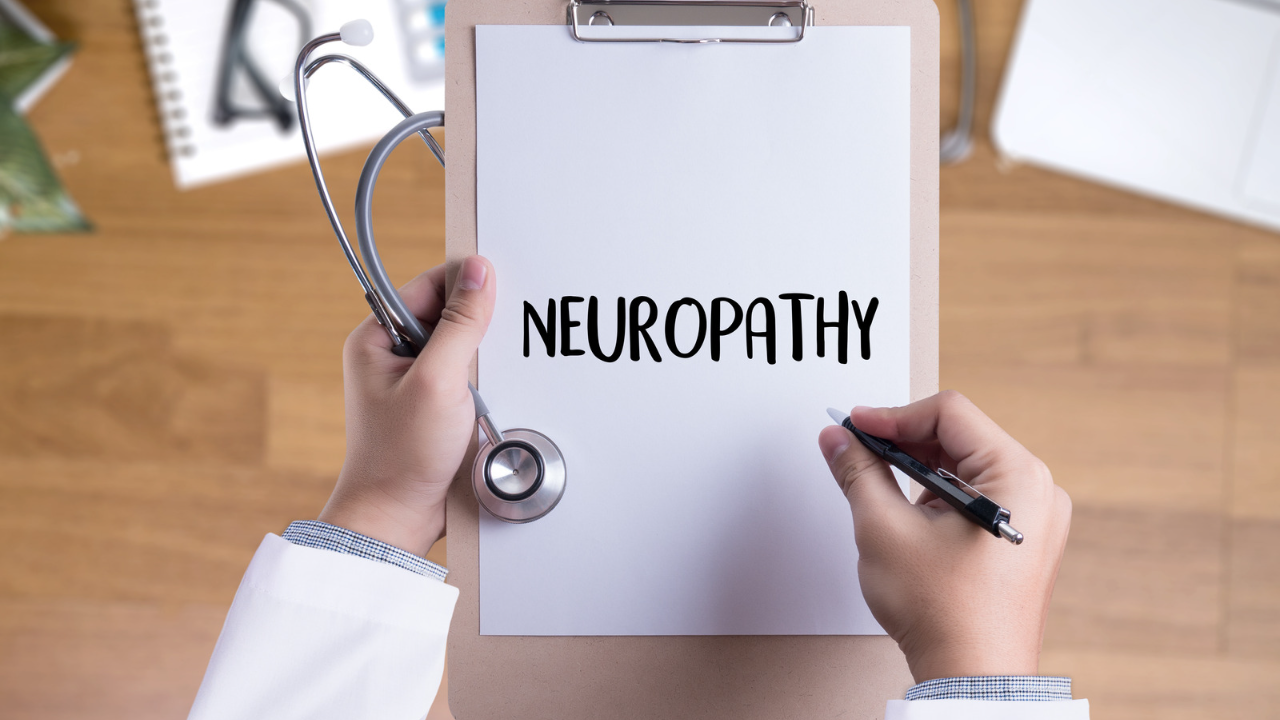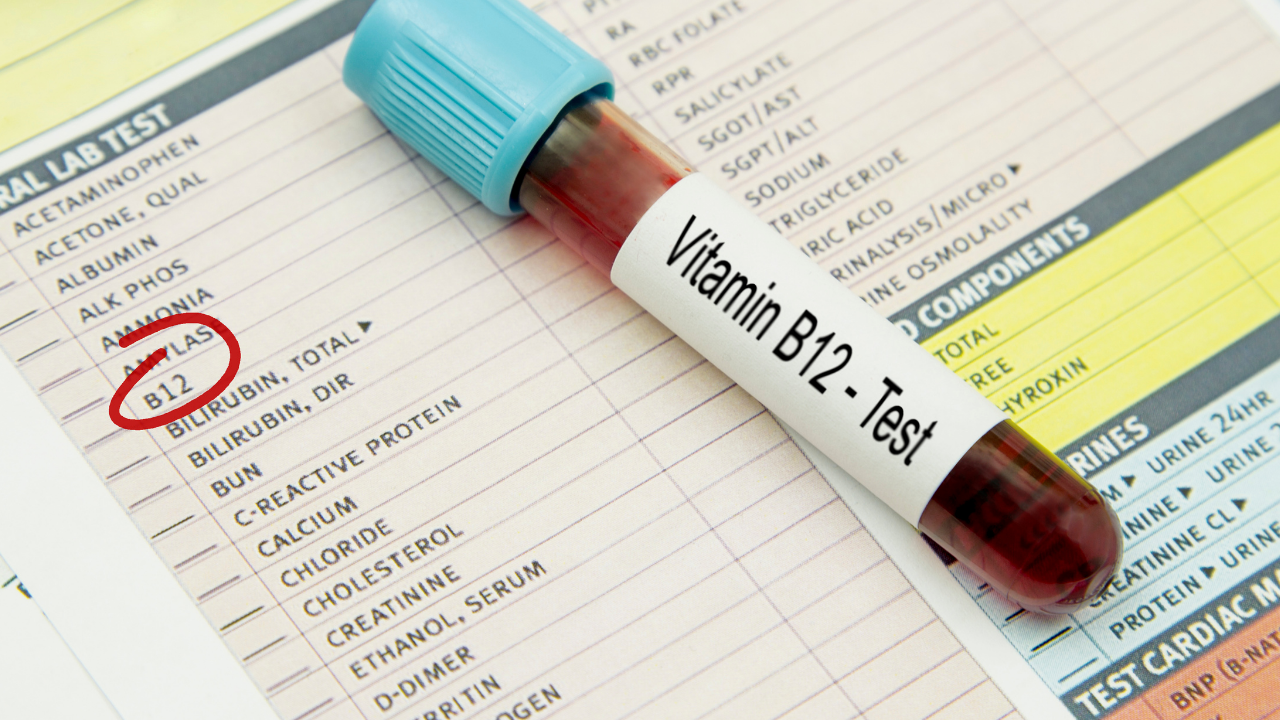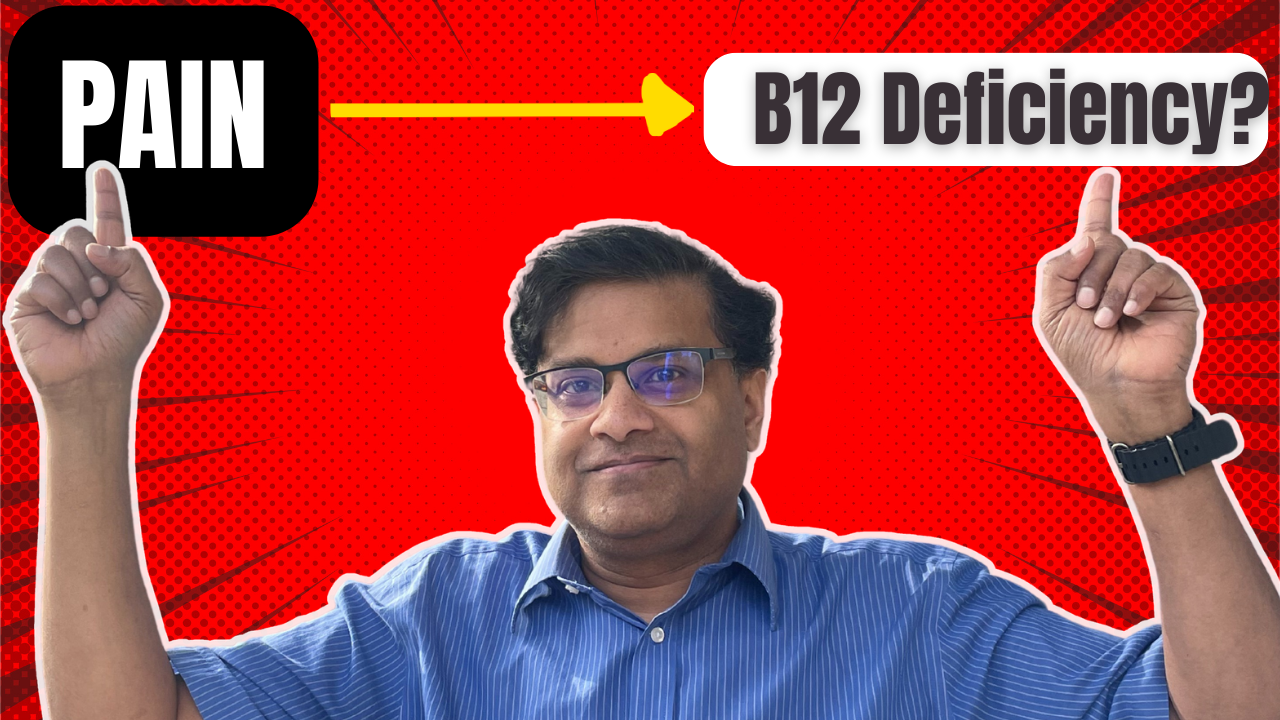Are you in pain?
Is it because you’re B12 deficient?
This article will look into the question does vitamin B12 deficiency cause pain.
What is Vitamin B12?
Vitamin B12 is a water-soluble Vitamin. It is also called cobalamin.
Why is Vitamin B12 important?
Vitamin B12 is an essential nutrient. It helps make your body’s blood cells such as your red blood cells. It also helps keep your nerve cells healthy. Vitamin B12 is important for in helping to make your DNA in all your cells. This vitamin can’t be made in your body. Your source of Vitamin B12 is from food or supplements.

What are dietary sources of Vitamin B12?
Vitamin B12 is present in a variety of animal products these can include eggs, dairy products, fish, meat, and poultry. They can also be found in fortified breakfast cereals as well as in fortified nutritional yeasts. If you are a strict vegetarian or vegan, you might not have adequate amount of Vitamin B12 in your diet and should be supplemented. According to the NIH the recommended daily intake for adults above the age of 18 is 2.4 mcg per day.
Can B2 deficiency cause pain?
Vitamin B12 deficiency can cause pain because of its role in maintaining the health of the nervous system. The nervous system is a complex network of nerves that transmit signals between the brain, spinal cord, and the rest of the body. Vitamin B12 is essential for the production and maintenance of myelin, a fatty substance that forms a protective sheath around nerves.
When there is a deficiency in vitamin B12, several mechanisms contribute to the development of pain:
- Peripheral Neuropathy: Vitamin B12 deficiency can lead to damage to the peripheral nerves, a condition known as peripheral neuropathy. These nerves transmit signals to and from the extremities, such as the hands and feet. Damage to these nerves can result in pain, tingling, and numbness in these areas.
- Impaired Nerve Function: Vitamin B12 is crucial for the normal functioning of nerve cells. When there is a deficiency, the nerves may not function the way they should do, leading to abnormal sensations and pain.
- Altered Pain Perception: Vitamin B12 plays a role in the synthesis of neurotransmitters, which are chemicals that transmit signals between nerve cells. Changes in neurotransmitter levels due to B12 deficiency may affect pain perception, making individuals more sensitive to pain.
- Muscle Weakness and Pain: Vitamin B12 deficiency can also result in muscle weakness and pain. Weak muscles may not provide adequate support to joints, leading to discomfort and pain, particularly in the legs.
It’s important to note that symptoms can vary from person to person, and the severity of pain may depend on the extent and duration of the deficiency. If you suspect a vitamin B12 deficiency and are experiencing pain, it’s advisable to consult with a healthcare professional for proper diagnosis and treatment.

What are common descriptions of the pain associated with B12 deficiency?
- Tingling and Pins and Needles Sensations: Many individuals with B12 deficiency report sensations of tingling, pins and needles, or a “prickling” feeling, especially in the hands and feet. These sensations can be persistent and may worsen over time.
- Numbness: Some people experience numbness in certain areas of the body, particularly in the extremities. This numbness may affect your fine motor skills.So you might have problems drawing or painting or grasping a pencil for example.
- Burning or Electric Shock Sensations: In some cases, individuals may describe a burning sensation or sudden electric shock-like pains. These sensations can be sharp and fleeting or more chronic in nature.
- Muscle Weakness and Aching: Vitamin B12 deficiency can lead to muscle weakness and aching, especially in the legs. This can contribute to an overall sense of discomfort and pain, particularly during physical activities.
- Joint Pain: if your muscles are weaker, they won’t be able to support your joints. Because of this you might experience joint pain especially in your larger joint such as your knees.
- Generalized Discomfort: Some individuals with B12 deficiency may experience a more generalized discomfort or pain throughout the body. It’s often described as a diffuse, hard-to-pinpoint ache.
Treatment & monitoring:
Here’s a table you can look at to establish when B12 deficiency needs to be treated you can establish how low your B12 level is by a simple blood draw.
- You are deficient if your value is less than 200 pg/mL.
- You are borderline if you value is between 200-300 pg/mL
- You are normal if your value is over 300 pg/mL

- Mild deficiency supplementation is as follows:
- Oral: 500 to 1,000 mcg daily for 1 to 2 weeks; maintenance: 1,000 mcg daily
- Severe deficiency can be supplemented as follows:
- Oral: 1000 to 2000 mcg daily for life. These are in situations such as after stomach surgery, small intestine resection, inflammatory bowel disease
- Pernicious anemia:
- IM: 1000 mcg daily for a week, then weekly for 4-8 weeks, then monthly
Once you have been supplemented appropriately, your anemia should start improving within a week or two and normalize within 4-8 weeks. Neuropsychiatric symptoms may take 3 months to improve and sometimes may take up to a year. However, some of the neurological symptoms may be irreversible if they have been present for a long time. It is good practice to repeat a complete blood count and the deficient vitamin level in about 4 weeks.
If you interested in checking the YT video, click right here.
Sources:
https://ods.od.nih.gov/factsheets/VitaminB12-HealthProfessional/






